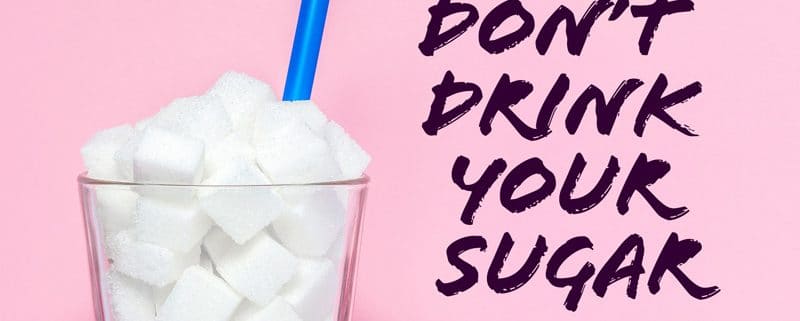Find Your WHY And You’ll Find Your Way

A common goal for many people is to lose weight. In fact, if you use Google search, how to lose weight is in the top 3 most popular questions. With a multi-million dollar weight-loss industry out there and a worldwide obesity epidemic, it’s clear that just setting a goal to lose weight isn’t enough. Even if you do lose the weight, it often comes right back on after you’ve reached the goal. What if there was a deeper reason why you want the weight off far beyond what the scales say? Your most powerful motivation source is YOU, so connecting to what makes YOU tick could be the key.
There is a saying by Friedrich Nietzsche – “He who has a why to live can bear almost any how.” Anthony Robbins then took this quote and reworded it to the catchy ‘Find your WHY and you’ll find your WAY’. Your WHY is connected to your values, which reflect what is really important to you. It’s the fire in your belly, your mojo, your core motivation that connects you to the goal on an emotional level.
Researchers like Deci and Ryan, founders of Self-determination theory, have shown that if you find your own reasons why a goal is important to you, and are emotionally connected to this goal, you are more likely to achieve it.
Your WHY needs to come from within you (the geeky science term is ‘self-determined intrinsic motivation’ and an even better, but similar form of motivation is ‘Intrinsic motivation’). Weight loss maybe what you want, but to stick to a weight-loss plan you need a deeper reason than getting into size 8 jeans.
Here are some examples of WHY’s around weight loss that have an emotional connection to the goal:
- I want to have more energy so I can play with my kids
- I want to live pain free so I can live my life feeling well
- I want to love myself again so I can be at my best
- I want to live a long life so I can be here for my grandchildren
- I want to feel happy again
- I want to buy the clothes that make me feel comfortable
- I want to bounce out of bed in the morning and look forward to the day
Your core reason for WHY you want to reach your goal is unique to you, but it must connect with you on an emotional level.
What’s your WHY for achieving your goal that you have an emotional connection with?
Don’t Believe Everything You Think
“Don’t believe everything you think. Thoughts are just that – thoughts” – Allan Lokos, author

Most of us want a mindset that helps us feel good and helps us be productive, kind, helpful and just all-around awesome. But our mindsets are not always an environment of roses and fluffy clouds as we’d like them to be. This is often hard to be aware of and hard to change.
Think of the set in mindset. It’s rigid, stubborn …. it’s set.
Why does this happen? It’s a cumulation of past experiences, previous thoughts, relationships, what others have done and said (even as small children), what we’ve seen in the media and what the most important people in our lives have said or done that make up our current mindset. The beliefs, opinions and attitudes that make up our mindset are pretty much hard-wired in us but this hard-wiring can be changed.
There are so many ways to look at a situation, so many different ways to think about the things that happen to you and around you. Remember the story of Pollyanna? She saw the good in everything, even in the worst situations. The first step is to be aware of your thinking choices. We have around 50,000-70,000 thoughts a day and many of these are repeated and many not logical.
Cognitive bias, false assumptions, misinformation, ego and limited beliefs are just a few patterns of unhealthy thought that interfere with our judgement. With a rise in mental health issues worldwide, there are a lot of us out there with unhealthy thought patterns. One in 4 people worldwide are affected by a mental health disorder (1) and 4 million people in Australia are experiencing a Mental Health issues (2) with Tasmania ranking the highest for hospital admissions due to mental health issues.(3) Mental health can be a complex issue. Having awareness of whether you have a positive or negative mindset can be a help.
If you tell yourself you’re a failure, you believe you’ll never be good enough, you believe that people in the street look at you because they’re judging you, you believe you could never get to where you want to get to – you may want to start challenging these limiting beliefs.
Here are some tips for rewiring your brain to create a positive mindset – often referred to a ‘growth mindset:
- Use positive words instead of negative ones. Words create thoughts which create a feeling, so try and keep them positive.
- Be grateful. Research is showing us that a daily gratitude ritual makes us happier. Add the gratitude ritual on the Ritualize app and make a note of something you are thankful for each day.
- When talking or thinking about something you’d like to have or do, use aspirational and positive language, for example:
- Instead of “I can’t run 5km” you’d say “I can’t run 5km yet”
- I can’t run 5km yet/however I can go swimming more often.
- I’m not sleeping well YET but it’s something I’m working on.
- Be empathetic to others. We are often so entrenched in our own beliefs that we don’t see others points of view.
Taking control of your thoughts is the first step to a more positive and happier mindset. Listen to your thoughts before you react.
REFERENCES
http://www.who.int/whr/2001/media_centre/press_release/en/
http://www.abs.gov.au/ausstats/abs@.nsf/mf/4364.0.55.001
http://www.abc.net.au/news/2017-10-14/community-based-care-needed-to-curb-mental-health-hospital-admi/9049808
Not all calories are created equally
Calories are often at the centre of our decision as to whether or not to eat a certain food. Many of us are counting our calories and many weight loss programs require you to do the same, but is it an effective long-term strategy?
We would say no, for a number of reasons:
- It’s very time consuming, and not a realistic long-term strategy for most people.
- Manufacturers are allowed up to 10% leeway when estimating calories in their products, so you may be eating more or less than you think.
- Calorie amounts found on food labels are based on something called the Atwater system, which basically involves estimating the energy of foods by measuring the heat given off when it is burned. However, the accuracy of the system is strongly disputed – for example, a 2012 study by a USDA scientist concluded that the measured energy content of a sample of almonds was 32% lower than the estimated Atwater value. Furthermore, it is known that some calories are lost in waste, without ever having been chemically converted or stored. It is really just generally accepted as true because there is no better way to estimate calories from food at this point.
- Calories from different foods are not all equal.

Calorie Inequalities
Professor Robert Lustig carried out a study. For example, you could eat a doughnut which is around 240 calories. The same calories are in a cup of avocado. One is a highly processed food and the other is picked off a tree. Same calories, same effect? Absolutely not.
With that in mind, let’s look at some examples of how the body breaks down, metabolises and uses food. The food contains the macronutrients fibre, protein, fat and carbohydrates.
Fibre
Nuts are high in fibre and there is some research to say that lean, healthy people tend to eat a lot of them. How can this happen given they’re high in calories? Let’s say you eat 160 calories in almonds. Because of the fibre in the almonds, some good things happen. First, the fibre keeps your blood sugar from rising too high, which keeps your insulin down. Secondly, the fibre bypasses the small intestine and goes intact to the large intestine and the good bacteria living there end up chewing it up instead of you absorbing them. So, even if 160 calories entered your mouth, only around 80% of those are actually available for you to absorb. This is because not all calories are created equal.
Protein
Digestion of food requires energy to create energy. This is called the thermic effect of food and protein requires over twice the energy to digest it if you compare it to fat and carbs.
Fat
Next, let’s look at the demonised fat. There are good fats and there are bad fats. Some fats are incredibly good for you and others will, over time, make you sick. Good fats are like omega 3s of salmon, flaxseed and walnuts or monounsaturated fat from avocado. Bad fats include trans fats which are found in many processed foods and junk food. Calories from fat are not all equal either.
Carbohydrates
Let’s look at carbohydrates. Like fat, there are good carbs and there are bad carbs. Like fat, there are good carbs and there are bad carbs. Good carbs from real, unprocessed food such as vegetables, legumes, fruit and whole-grains which are high in fibre. Refined carbohydrate is found in processed food, which is low in fibre. This is the reason the current western diet is low in fibre, which is a major factor as to why people are getting sick.
Ritualize has a simple approach to nutrition – we call it the 80/20 Lifestyle where 80% of your daily food intake is from real, whole food that was recently alive and 20% is your treat food. This approach means you don’t feel deprived, but maintain control of the treat food while getting all the nourishment your body needs to stay healthy.
Be Kind To Yourself
“If your compassion does not include yourself, it is incomplete…” – Buddha

We know that feeling compassionate towards others is a good trait to have.
Feeling compassionate means we are aware and are moved by the suffering of others. Research is showing that being compassionate towards other can increase our well-being.The part of the brain responsible for compassion and empathy is the cerebral cortex. If it’s working well, we feel kindness, care and understanding for people.
Self-compassion is where compassion turns inward and those feelings of kindness and understanding are directed at ourselves at those times when we feel inadequate or if we fail rather than drowning ourselves with self-criticism. With 3 million people in Australia living with depression or anxiety, it seems self-compassion may be missing in a lot of lives. There’s good reason to be self-compassionate and science is showing us why.
A study at Duke University, Wake Forest University, and Louisiana University on self-compassion showed:
- People who were self-compassionate tended to be more optimistic and had a tendency not to believe that their problems were worse than other people’s problems.
- A person with a high level of self-compassion experiences the feeling of kindness towards oneself, and takes on a nonjudgmental attitude towards their own inadequacies and failures, recognising that experiencing those failures is normal.
- People who were self-compassionate had less sadness, anxiety, and negative feelings.
Top 5 Ways to Feel Self Compassion
DO WHAT MORE OF WHAT BRINGS YOU JOY
Whether it’s playing with your dog, gardening or working out at the gym, so more of what makes you happy. Write a list of things that you enjoy so when you are feeling negative you can read the list and choose something that works for you.
PUT YOURSELF FIRST
Many of us spend time tending to the needs of others that we put ourselves at the bottom of the priority list. Putting self-care higher up the list will improve well-being and therefore improve our ability to look after others.
BREATHE
Deep breathing such as Box Breathing or any meditation practice calms the central nervous system, alleviating stress and anxiety.
EXERCISE
Exercise is not only physically good for us, but it taps into the emotional parts of the brain that trigger the release of ‘feel good’ hormones. You don’t have to sweat it out at the gym as even smaller, short bursts of exercise have a positive effect on our mood.
EAT WELL
When we are feeling down about ourselves we often crave high sugar and fat foods which release the hormone, dopamine, making us feel good in the short term. Our brains are wired to seed pleasure, so we turn to these foods to seek the positive feelings they bring. Research is showing a link between mood and food intake which can lead to health problems (https://www.ncbi.nlm.nih.gov/pmc/articles/PMC4150387/) Eating a balanced diet of plenty of vegetables, fruit, protein, good fat, complex carbs and fibre will curb the sugar craving and stabilise mood swings.
BE SOCIAL
Being around friends and family who matter most can have a positive effect on your mental and physical health. If you’re feeling negative thoughts about yourself, call a friend you can confide in or even just have a chat. Often speaking with other puts a different perspective on things.
Sleep, Focus and Cognitive Performance

Do you wake up feeling exhausted? Or have trouble concentrating at work? Or maybe your tolerance levels are lower than usual. It might be you are not getting enough sleep.
Cognitive performance is our ability to utilise the knowledge acquired by the mental processes in our brains. A well-functioning brain controls a range of voluntary and involuntary actions, such as our sleep-wake cycle, attention, perception, mood, emotions, hunger and memory.
When you lose sleep, it interferes with the functioning of certain brain areas and people who are exposed to Sleep Deprivation usually experience a decline in cognitive performance, changes in mood, decreased reaction times, loss in free recall and in facial recognition.
While losing sleep here and there won’t have much affected, ongoing loss of sleep can have a big impact over time and can impair our ability to do well in school, at work, and in our daily life. Sleep Deprivation can make it significantly harder to focus, and pay attention and be productive. This affects school performance and job productivity.
A lack of sleep can also slow your reaction time, which makes for dangerous driving and other safety-related risks at work and at home. This can put not only your life in danger but others as well.
We also need a good sleep to achieve our best innovative thinking and problem-solving abilities. As you sleep, memories are reactivated, connections between brain cells are strengthened, and the information is transferred from short to long-term. Without enough quality sleep, we can easily forget new information, old information and even memories. Getting a good night’s sleep can be crucial for school and university students throughout their semesters.
If you’re having trouble with any of the cognitive abilities mentioned above, you maybe not getting enough sleep. Work at increasing the hours of sleep you get a night. Everyone is different as to how many hours you should get. We have lots of tips on how to improve your quality of sleep in our Ritualize program, with an entire Quest dedicated to it and a Learn section within the app accessible at all times. Check it out and set yourself the challenge of increasing the hours you get a night, and see if you notice any improvements in your work, school and daily life. Good luck!
References:
https://pdfs.semanticscholar.org/387c/4ba8b0a5bd5533a52d63a2324f02d0183797.pdf
https://sleepfoundation.org/how-sleep-works/how-lack-sleep-impacts-cognitive-performance-and-focus
https://www.ncbi.nlm.nih.gov/pmc/articles/PMC2656292/
https://hbr.org/2006/10/sleep-deficit-the-performance-killer
Don’t Drink Your Calories
When we’re thirsty, most of us have a huge range of beverages to choose from, but many of these are doing a lot more than quenching our thirst. What regular drinkers of sweetened beverages may not realise is they are adding to their daily energy (or calorie) intake.
Australians are drinking a lot of sugar in the form of sweetened beverages. In fact, it’s the largest source of sugars in the Australian diet. What may seem like an innocent couple of cans of soft drink a day can lead to weight gain, type II diabetes and tooth decay. Take a look at the table below to see how many teaspoons of sugar are in some popular sugary drinks. And fruit juice isn’t exempt from the list. What we traditionally have perceived as a health drink is actually a glass of fructose, with the sugar levels just as high as a soft drink.

We use the term ‘empty calories’ when referring to the calories in sugary drinks. This means that the body and brain don’t register the body is full after drinking hundreds of calories, so you end up consuming more calories than you may have if you didn’t drink the ‘empty calories’. This may be because of the hormone ghrelin, which is in the stomach and tells the brain when you’re hungry. The catch is, it only works with solid food, not liquids. Our bodies are not designed to drink calories.
What about sugar alternatives in diet drinks? You would think they’d be fine if you’re just talking calories, but studies are starting to show a link between artificially sweetened drinks and weight gain. This could be because the sweet taste of these drinks stimulates the appetite for other sweet food so may lead to people eating more food high in sugar and calories. Although the jury is still out on artificially sweetened beverages, there’s enough association to assume they are not the healthier alternative.
What should you drink when you’re thirsty? Water will always come up trumps. Water not only doesn’t affect your waistline, it helps lift your energy levels, focus, mood, it hydrates every cell of your body and is even good for sore muscles. A good idea is to buy a good water bottle and carry it everywhere with you so you have it on-hand.
If you’re not convinced, here’s another great article on the benefits of giving up sugary drinks.
SaveSave
SaveSave






